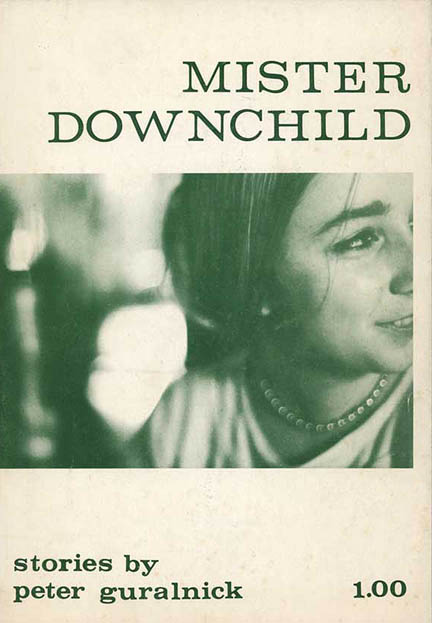Everyone looked at him like he was their ... savior, ... everywhere he went he was an object of admiration and adoration -- and yet he couldn't muffle the growing discontent, the helplessness he felt at his inability to control not so much the world around him as his private world, the inner world that was revealed to no one but him.

"Peter Guralnick" is an United States/American Music critics/music critic, writer on music, and historian of US American popular music, who is also active as an author and screenwriter.
Guralnick's first two books, Almost Grown (1964) and Mister Downchild (1967), were short story collections published by Larry Stark, whose small press in Cambridge, Massachusetts/Cambridge, Larry Stark Press, was devoted to stories and poems. Mona Dickson, writing in MIT's The Tech (newspaper)/The Tech (May 13, 1964) gave Almost Grown a favorable review.
After Guralnick graduated from Boston University in 1971 with a master's degree in creative writing, he began writing books chronicling the history of blues music/blues, country music/country, rock and roll and soul music/soul.
More Peter Guralnick on Wikipedia.The real story is that the fans are tied to Elvis by the same loyalty that he showed to them, ... He did show an extraordinary sense of identification with the fans. He had an almost mystical belief that all of his strength -- and his very legitimacy -- came from his fans.
I thought a lot of people would dismiss the subject as trivial, ... and ... that regardless of what I achieved, the subject would be dismissed. I think I've been gratified more than anything. Whether people like the book or don't like the book, they treat the subject as worthy of discussion.
I guess I thought of it as an American tragedy, ... It has all the elements -- the success is larger than life, the aspirations are larger than life, and the fall from grace is equally larger than life.
It's like he gained a lot from his popularity, but he suffers a lot for it too.
I was trying to tell as honest and true a story as I could, ... Really, the challenge is to portray the world the person lives in, and in the first volume it was an expanding world. You can see in 'Careless Love' how constricted Elvis' world becomes.
Even as a child he had a vision of success taking place in a world that he couldn't possibly imagine, except through the movies, ... That's what lends the story either a tragic resonance or pathos or whatever.
I think Elvis was dismissed because of his popularity.
Copyright © 2024 Electric Goat Media. All Rights Reserved.